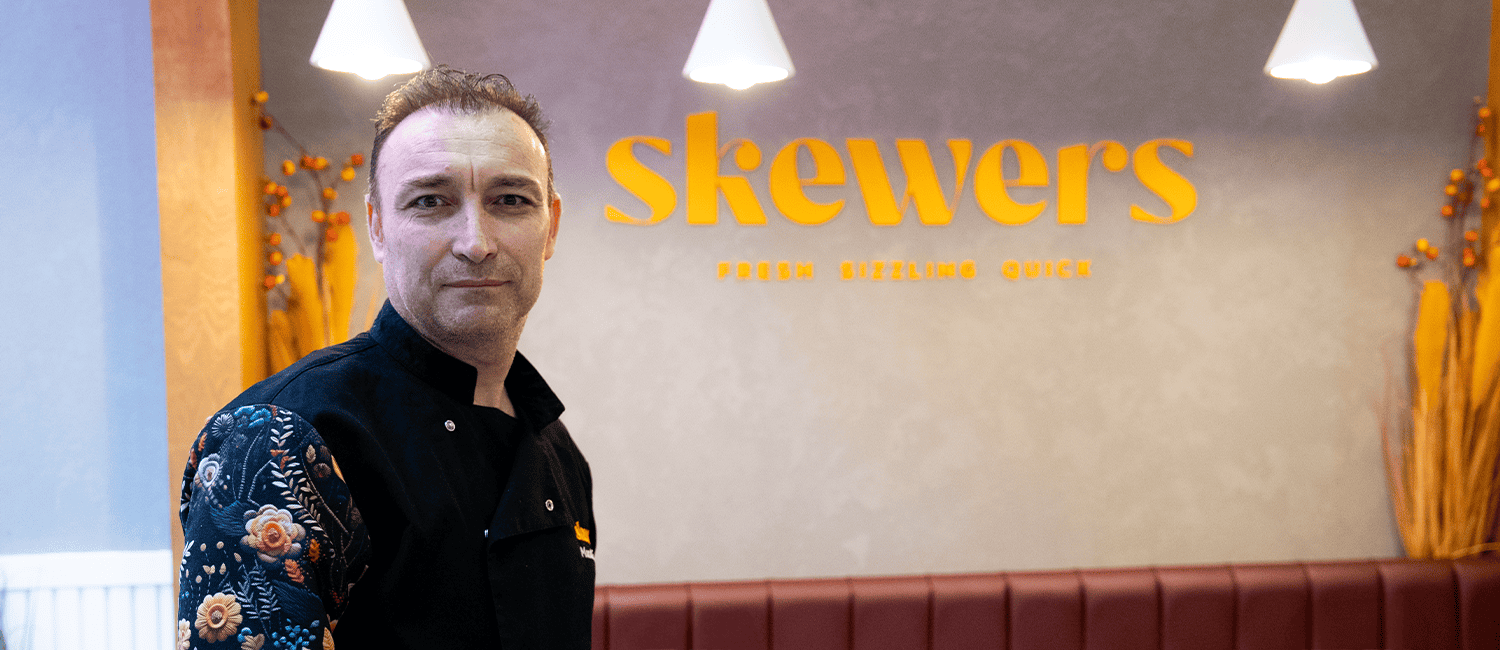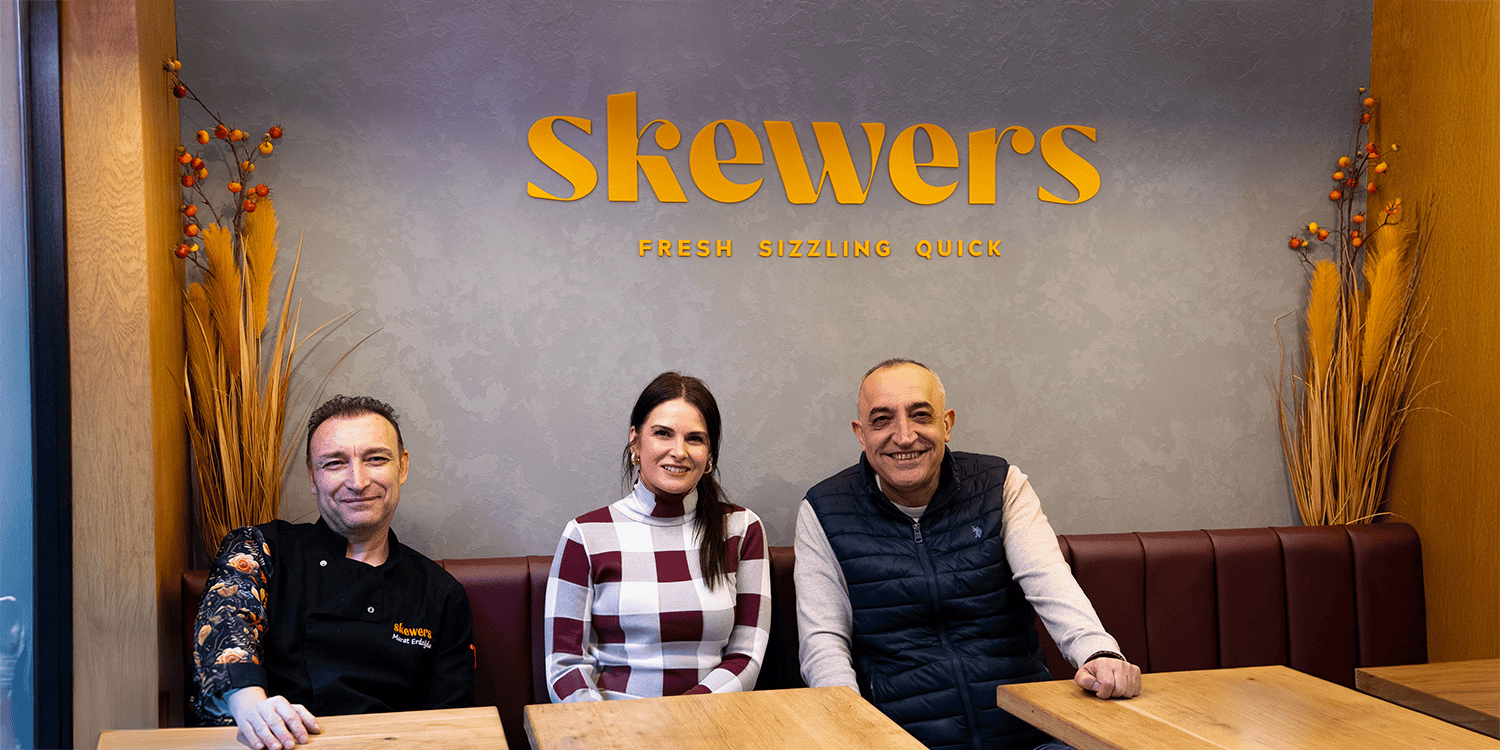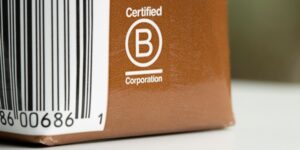What if your office lunches could be fresher, healthier, and better for the planet – all while supporting a local business? At 1st Formations, we’re committed to supporting sustainability, employee wellbeing, and small businesses around our Covent Garden, London office location. We’ve partnered with Skewers, a local company that prepares fresh, nutritious meals in environmentally friendly lunch boxes.
Companies like ours can reduce their environmental footprint, boost employee satisfaction, and contribute to their local economy by making conscious catering choices. This guide explores the advantages of sustainable office catering, with insights from Skewers’ Head Chef, Murat, and Business Partner & Marketing Director, Janan.
Key Takeaways
- Sustainable office catering benefits employee wellbeing, reduces environmental impact, and supports local businesses.
- Skewers prioritises fresh, locally sourced ingredients and planet-friendly packaging to maintain quality and sustainability.
- Long-term partnerships with local suppliers are a win-win for businesses and the community.
Why choose sustainable office catering?
More companies are recognising that their catering choices reflect their values. Choosing office lunches isn’t just about providing great food; it’s a way to encourage sustainable practices and waste reduction while supporting local businesses. By partnering with local suppliers, companies large and small can demonstrate their commitment to corporate social responsibility while fostering a healthier workplace culture.
When choosing a food supplier, we wanted to partner with a business that reflected our sustainability values. Skewers stood out because it:
- uses fresh, locally sourced ingredients
- prepares meals daily to ensure quality and nutrition
- packages whatever it can in low environmental-impact materials
This helps us reduce single-use plastic waste and promote healthy eating.
The story behind Skewers and supporting a local business
Skewers’ name comes from the Turkish ‘shish’, meaning ‘skewer’, but with a twist. “People expect it to be Mediterranean, but we combine it with Asian-style kushiyaki,” says Murat. Skewers’ unique approach to flavour and freshness is key to its success: “Wooden skewers get wet and oily inside the meat; this helps maintain the flavour,” he explains.

Skewers is a recently formed business in Covent Garden, a competitive and expensive area. “We want to offer everyone a good, tasty meal without choosing just one target customer,” explains Janan. “We would save 50% on cost if we opened in zone 4 or 5, but we picked Covent Garden because everything is here – offices, tourists.”
- Earth Day 2025 – Our Power, Our Planet
- Carbon neutral re-certified!
- A guide to starting a food-to-go business
By committing to over 50 guaranteed weekly orders, we provide Skewers with a reliable revenue stream while supporting its growth. Our partnership strengthens the sense of community in the London Borough of Camden, and we’re proud to support this new business.
Skewers have started forming partnerships with several offices in the area by visiting their premises and asking them to sample the food: “We now partner with five offices and hopefully more to come. We do this by offering tasting sessions at our location.” When asked what advice Janan has for small food businesses, she says, “Tasters and samples are a great way of promoting your offerings.”
Fresh and nutritious office lunches
One of the key reasons we chose Skewers is the focus on freshness and quality. “Good quality makes the business appealing,” says Murat. “Even the teriyaki sauce – you can buy it cheap for £1, but we make it ourselves.”
Skewers prepares its salads and proteins in-house daily, so everyone gets a nutritious and tasty lunch to maintain their energy levels throughout the workday. “Read our labels; you’ll see how few ingredients we have,” emphasises Murat.
We don’t have a proper fridge and freezer – everything is fresh.
Minimising our waste and carbon footprint
Skewers is committed to using minimal-impact packaging. This aligns with our broader corporate sustainability goals and reinforces a planet-friendly culture in our workplace.
“Plastic packaging could have been better for maintaining the temperature of the food, but we don’t want that,“ says Murat. “Plastic keeps steam and water in; it’s going to make it soggy, so paper is better, both for sustainability and maintaining quality and standards.“

Opting for lunch options that use recyclable and compostable materials helps your organisation minimise its waste. What’s more, ordering in bulk helps reduce the number of single-use plastics and containers that will end up in landfill.
“We change what we’re doing based on customer feedback; we adapt,” Janan explains when asked about their packaging choices. For example, Skewers only hands out extra packaging like sauce containers when requested to reduce unnecessary waste.
By choosing locally sourced lunches, we’re also cutting down on food miles, which helps reduce our carbon footprint.
Encouraging sustainable habits in the workplace
Beyond choosing environmentally friendly vendors, businesses can reduce waste by providing designated recycling and composting bins and educating employees on responsible disposal practices. At 1st Formations, we encourage our employees to:
- Use office food waste and recycling bins effectively
- Opt for reusable cutlery and containers when possible
- Be mindful of ordering only when they plan to be in the office to reduce food waste
A win-win partnership
We taste-tested Skewers’ menu before committing, which passed with flying colours. Our team has been impressed with Skewers’ inclusive options—including vegetarian, vegan, and halal boxes—and commitment to quality.
But it’s not just about quality; it’s also about being fast. With office workers on tight schedules, speed is crucial. “People want it fast! That’s why we have a 7-minute target to get lunch out the door,” highlights Murat. This focus on quick service means our employees get a delicious, nutritious meal without compromising on their busy workday.
Boosting employee wellbeing
Free, high-quality office lunches are a great perk and foster a positive workplace culture. Small gestures like this can make employees feel valued and motivated to come into the office while making healthier food choices.
Making a tangible difference
By working with Skewers, we demonstrate that sustainable catering is a practical business decision that benefits people, the planet, and the local economy. Our collaboration proves companies can make ethical choices without compromising convenience, taste, or budget.
What’s next for Skewers?
Looking ahead, Skewers isn’t interested in following trends – its Head Chef is carving out his own path. When asked about potential collaborations, he laughs off the idea of teaming up with well-known names. “Not Salt Bae,” Murat jokes. “He’s a butcher first and foremost. I have my own way of cooking.”

Whether you’re stopping by for a quick office lunch or treating yourself to a flavourful dinner, Murat and his team are dedicated to delivering delicious meals in Covent Garden. With a focus on fresh ingredients, quick service, and a passion for cooking, it’s no wonder customers keep returning for more.
Explore sustainable lunches for your business
Sustainable office catering is a meaningful way to align your business’ values with day-to-day operations. By choosing to work with Skewers, we’ve created a mutually beneficial partnership that delivers fresh, healthy meals to our team while supporting a local business committed to sustainability.
Now is the time for more businesses to embrace sustainable catering solutions. Whether you want to boost employee well-being, reduce environmental impact, or support your local economy, the right catering partner can make a difference. If you’re eager to explore sustainable catering options for your office, comment below or get in touch to learn how to make the switch. You’ll also find more insights into operating as a sustainable business on our blog.
Please note that the information provided in this article is for general informational purposes only and does not constitute legal, tax, or professional advice. While our aim is that the content is accurate and up to date, it should not be relied upon as a substitute for tailored advice from qualified professionals. We strongly recommend that you seek independent legal and tax advice specific to your circumstances before acting on any information contained in this article. We accept no responsibility or liability for any loss or damage that may result from your reliance on the information provided in this article. Use of the information contained in this article is entirely at your own risk.












Join The Discussion